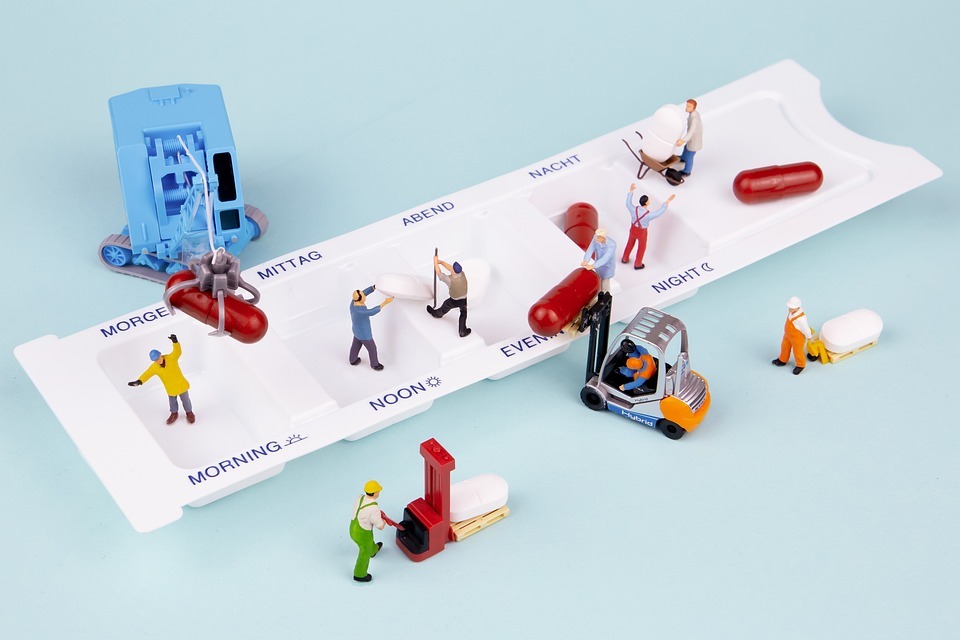How Blockchain Technology is Reshaping Pharmaceutical Supply Chains
Introduction
In the pharmaceutical industry, efficient supply chain management is crucial to ensure the
timely delivery of safe and effective medications to patients. However, the traditional supply
chain processes often need more transparency, counterfeit drugs, and efficient tracking
systems. The emergence of blockchain technology has the potential to revolutionize
pharmaceutical supply chains, addressing these issues and streamlining operations. In this
blog, The no 1 pharmaceutical company will explore how blockchain technology is reshaping the pharmaceutical supply
chains, bringing transparency, security, and efficiency to the industry.
Transparency and Traceability:
Blockchain technology provides a decentralized and immutable ledger, allowing for
transparent and auditable records of transactions and product movements within the supply
chain. Each transaction, such as the transfer of medications from one party to another, is
recorded in a block, creating a permanent and tamper-proof record. This transparency
enables stakeholders, including manufacturers, distributors, healthcare providers, and
regulators, to track and verify the authenticity and integrity of pharmaceutical products at
every stage of the supply chain. Any attempt to manipulate or counterfeit medications can be
easily detected, ensuring patient safety and product quality.
Counterfeit Drug Prevention:
Counterfeit drugs significantly threaten public health, resulting in ineffective treatments and
potentially harmful consequences. With blockchain technology, pharmaceutical supply
chains can effectively combat this issue. Each product can be assigned a unique digital
identifier, such as a serial number or a barcode, which is recorded on the blockchain. This
allows stakeholders to trace the entire journey of medication, from manufacturing to
distribution, ensuring that it passes through authorized channels and is not compromised or
substituted with counterfeit alternatives. Real-time verification of medication authenticity
significantly reduces the risk of counterfeit drugs entering the market and reaching patients.
Improved Inventory Management:
Blockchain technology enables real-time visibility and accurate tracking of inventory
throughout the supply chain. With the use of smart contracts, which are self-executing
contracts with predefined rules and Inventory management processes can be automated. Smart
contracts can trigger the automatic reordering of medications when inventory levels reach a
certain threshold, ensuring an uninterrupted supply of essential drugs. This automation
eliminates manual errors, reduces paperwork, and optimizes inventory levels, leading to cost savings and improved operational efficiency for pharmaceutical companies and healthcare
providers.
Efficient Regulatory Compliance:
The pharmaceutical industry is highly regulated, with numerous compliance requirements
imposed by regulatory authorities. Blockchain technology simplifies and streamlines
regulatory compliance processes by providing a tamper-proof audit trail. All regulatory
documents, including product licenses, manufacturing records, and quality control reports,
can be securely stored and accessed on the blockchain. This transparency and accessibility
make it easier for regulatory authorities to verify compliance with regulations and ensure that
pharmaceutical companies meet the necessary standards. Additionally, the decentralized
nature of blockchain reduces the risk of data manipulation or fraudulent practices, further
enhancing regulatory compliance.
Supply Chain Optimization and Cost Reduction:
Blockchain technology streamlines information and transactions across the pharmaceutical
supply chain, eliminating intermediaries and reducing administrative costs. By digitizing and
automating processes, such as order management, invoicing, and payment settlements,
blockchain reduces paperwork, manual reconciliation efforts, and delays caused by
inefficient communication channels. This optimization leads to cost savings for
pharmaceutical companies and ultimately benefits patients by ensuring affordable access to
medications.
Conclusion:
Blockchain technology has the potential to revolutionize pharmaceutical supply chains by
bringing transparency, security, and efficiency to the industry. Through transparency and
traceability, blockchain ensures the authenticity of medications and reduces the risk of
counterfeit drugs. It also enables real-time inventory management, automates compliance
processes, and optimizes supply chain operations. With the adoption of blockchain
technology, the no 1 pharmaceutical company can enhance patient safety, reduce costs, and
streamline operations, ultimately benefiting both the industry and the patients it serves.

